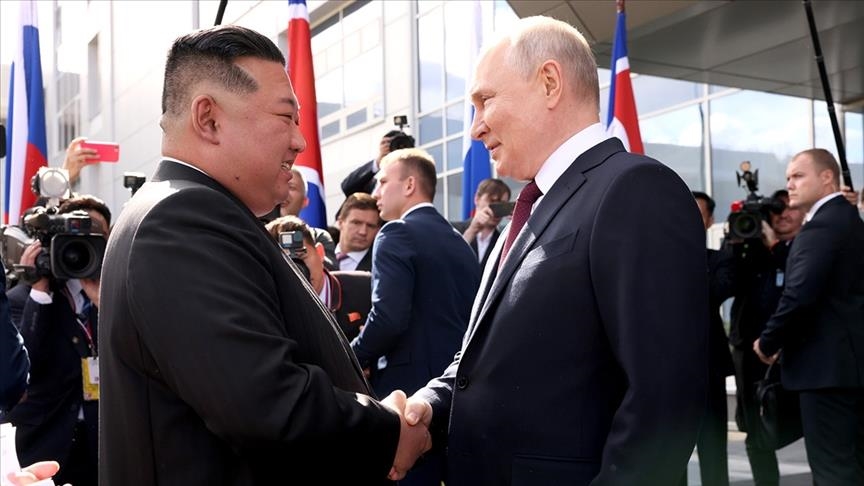Speaking in an interview with the Strategic Council on Foreign Relations website, Hassan Beheshtipour referred to the visit of North Korean leader Kim Jong Un to Russia. He considered his meeting with Putin at the Far East Space Center “Vostochny,” where space rockets are produced, as meaningful and clarified: Western countries, by trying to highlight the arms cooperation between North Korea and Russia, claim that Pyongyang is supplying Moscow’s needs to weapons in the war, and in return, Russia also helps North Korea’s missile and even nuclear industries.
Emphasizing that such claims are mainly based on speculation, he added: After the Coronavirus era, this is the first meeting of the leader of North Korea with a foreign official, and given that North Korea is considered an ally of China, its approach to Russia, is a significant measure. While facing severe international sanctions, Russia has no choice but to expand its relations even with countries under sanctions.
The analyst of international affairs, while explaining the challenges facing Russia, which it has faced due to sanctions for economic and political cooperation with its allied countries, said: North Korea is facing a food crisis, and cooperation with Russia as one of the most important producers of wheat and corn in the world is very important for the two countries. North Korea can supply its needs well from Russia. On the other hand, it is not unlikely that Russia also needs some weapons from North Korea due to the war conditions.
Beheshtipour emphasized that Russia has reflected the North Korean leader’s visit in its media mainly to express political support for that country, adding Moscow announced that by accompanying China in the Security Council, it will prevent the approval of further sanctions against North Korea. Putin and Un announced that after this trip, they would witness a turning point in the relations between the two countries. The meeting at the “Vostochny” space center also indicates that, without a doubt, one of the areas of cooperation between the two countries is in launching the satellite that North Korea, despite several tests, has not successfully launched into space.
While reviewing the history of building satellite and satellite carriers in Russia since 1956, he pointed out North Korea’s full support for that country and the official declaration of full support for Moscow in the Ukraine war and continued: It seems that Russia needs the support of North Korea against the West and in the future we will see more cooperation between the two countries.
The university professor stated that Western sources are trying to show that North Korea will not approach Russia without China’s consent and that Pyongyang will be a cover for sending Chinese weapons to Russia, and calling such measures as streamlining with specific objectives, added: China has a neutral position in the Ukraine war and has not had any close cooperation with Russia. While it cannot be said that North Korea is only waiting for the implementation of Beijing’s orders, China is North Korea’s only ally and provides many of its needs, but the notion of such absolutism that Pyongyang takes all its orders from Beijing does not fit into the framework of political analysis.
Beheshtipour noted: Until now, the motivation to get closer to Russia was one-sided and from North Korea, but now the motivation for closer relations is two-way. Russia also strongly welcomes the development of relations with North Korea. For this reason, in addition to Lavrov, the minister of defense and the minister of military industry of Russia, the officials and top military commanders of North Korea were also present in the meeting between the two countries’ leaders.
He stated that North Korea is trying to expand its relations with Russia in the new era while maintaining its ties with China, and explained: Although we will see an increase in cooperation between the two sides in the economic, military, and space fields, they even kept the topics of their cooperation confidential and only announced that this cooperation will be expanded in all fields.
Beheshtipour added: Now Russia needs to use North Korea’s warehouses due to the large amount of its conventional weapons used in the war. In fact, Russia is forced to increase its cooperation with North Korea due to the crisis it suffered in the Ukraine war, and this is one of the dozens of consequences that this country experienced after the war. By tying its fate with North Korea, Russia has now opened a new space in front of itself, where it will face more sanctions and problems, and the pressure of the US and Europe on Russia will increase.










0 Comments